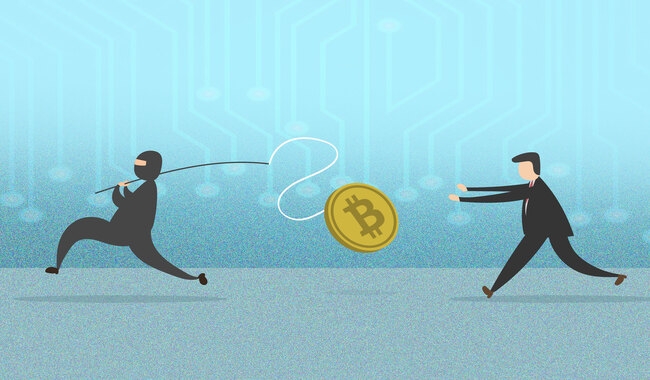Highlights:
- Authorities charged Brent Kovar with defrauding 400 investors of $24 million in a crypto scam.
- Kovar made false promises and misleading claims to lure investors into Profit Connect.
- Kovar faces up to 330 years in prison and a $4.5 million fine if convicted.
Brent Kovar, a 58-year-old from Las Vegas, has been charged by a US regulator for defrauding over 400 investors of $24 million. He ran a scam AI-driven crypto mining scheme, making false promises of 15% to 30% fixed returns and a full money-back guarantee.
Owner of Las Vegas Company Indicted in $24 Million Cryptocurrency Ponzi Scheme @FBILasVegas @FDIC_OIG @IRS_CI https://t.co/HZQUEqW993
— US Attorney Nevada (@USAO_NV) February 14, 2025
False Promises and Misleading Investors
Kovar allegedly tricked 400 investors between late 2017 and July 2021 by promoting Profit Connect as an AI-driven crypto mining company. He rented an office and warehouse, falsely claiming the computers were mining crypto and confirming transactions.
US Attorney’s Office for the District of Nevada stated:
“Mr. Kovar allegedly stole victims’ hard-earned money by making false representations regarding his investment company, including misleading some victims to believe their investments were backed by the FDIC.”
The lawsuit also stated that he did not trade securities, buy crypto, or fulfill any of Profit Connect’s promises to investors. Kovar misused investor funds for personal and business expenses. Kovar allegedly spent money on running Profit Connect, buying gifts for employees, and purchasing a house. Moreover, he made repayments that falsely appeared to come from crypto mining and transaction verification.
Kovar’s Charges and Possible Sentence
Kovar relied on a website, YouTube videos, and PowerPoint presentations to attract investors to his company. The grand jury charged him with 12 counts of wire fraud, three counts of mail fraud, and three counts of money laundering.
He could face up to 330 years in prison and a $4.5 million fine if found guilty. His trial is set for April. A federal district court judge will decide the sentence based on U.S. Sentencing Guidelines and other legal factors.
Ryan Korner, Special Agent in Charge at FDIC OIG, said:
“FDIC OIG is committed to identifying, and holding accountable, those who endanger our Nation’s financial system by victimizing others for their personal gain.”
Crypto Ponzi Schemes on the Rise
Crypto-related Ponzi schemes are becoming more common. On January 27, a court sentenced Antonia Perez Hernandez to over two years in prison. Hernandez admitted to collaborating with her co-conspirators to steal about $8.4 million from investors between 2017 and 2021. She promoted crypto trading and mining on Forcount, falsely promising high returns. Hernandez apologized to those who lost money due to her actions.
Just days later, the Attorney’s Office for the Western District of Washington reported that two Estonians confessed to operating a $577 million crypto Ponzi scheme. Their scheme affected hundreds of thousands of people worldwide, including in the United States.
Moreover, a few months earlier, an 86-year-old former lawyer from California admitted to running a multimillion-dollar crypto Ponzi scheme. The court sentenced him to five years of probation and ordered him to pay nearly $14 million.
Best Crypto Exchange
- Over 90 top cryptos to trade
- Regulated by top-tier entities
- User-friendly trading app
- 30+ million users
eToro is a multi-asset investment platform. The value of your investments may go up or down. Your capital is at risk. Don’t invest unless you’re prepared to lose all the money you invest. This is a high-risk investment, and you should not expect to be protected if something goes wrong.






